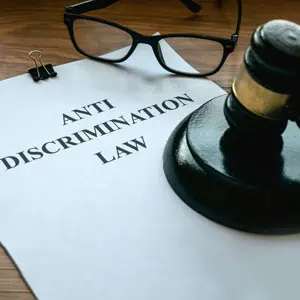
What Behavior Warrants A Workplace Discrimination Complaint? In my view, any discrimination is too much discrimination. That said, it’s understandable if you’re hesitant to report every incident, especially in real time or through formal channels. Workplace dynamics can be complex, and not every action rises to the level of a formal complaint. Judges also have discretion in how they interpret cases. Despite what the law might suggest, a judge may dismiss certain incidents as isolated remarks or minor infractions rather than evidence of ongoing discriminatory intent. This makes context and judgment critical. The work environment plays a role as well. For instance, while I don’t condone unprofessional conduct in any workplace, a jury might be more inclined to expect gruff behavior in a construction setting compared to a high-end surgical facility. These societal norms can influence what might seem actionable and may…Read More

Documenting Discrimination And Your Efforts To Stop It Is Essential One of the most common defenses employers use in discrimination cases is claiming they didn’t realize you were complaining about illegal conduct. Instead, they might argue that they thought your concerns were about unfair or unkind treatment—actions that, while unpleasant, are not unlawful. For instance, an employer might claim they misunderstood your complaint about being treated differently than colleagues of a different racial or ethnic background. They could argue they believed you were simply upset about general workplace dynamics rather than discrimination. This is where documentation becomes critical. A clear, detailed paper trail can prevent your employer from relying on this “play dumb” strategy. Specific, documented communication leaves no room for misinterpretation and significantly strengthens your position. Thirty years ago, creating such a record was far more challenging—and sometimes risky. Back then,…Read More

What is Workplace Discrimination, And How Is It Defined In Florida? Florida is an at-will employment state, meaning that, in most cases, employees can be hired or fired for any reason or even no reason at all. This includes reasons that may be mistaken or unfair, as long as they are not illegally discriminatory. The law in Florida only prohibits firing someone for specific, unlawful reasons. Many of these reasons are tied to class-based protections, such as: Race Religion Gender Ethnicity And other similar categories In addition to these broad protections, there are more specific prohibitions under Florida law. For example, employers are not allowed to discriminate against employees for: Filing workplace injury or accident claims. Objecting to or refusing to participate in actions that violate laws, rules, or regulations applicable to the business. Complaining about irregularities in pay or unlawful practices…Read More